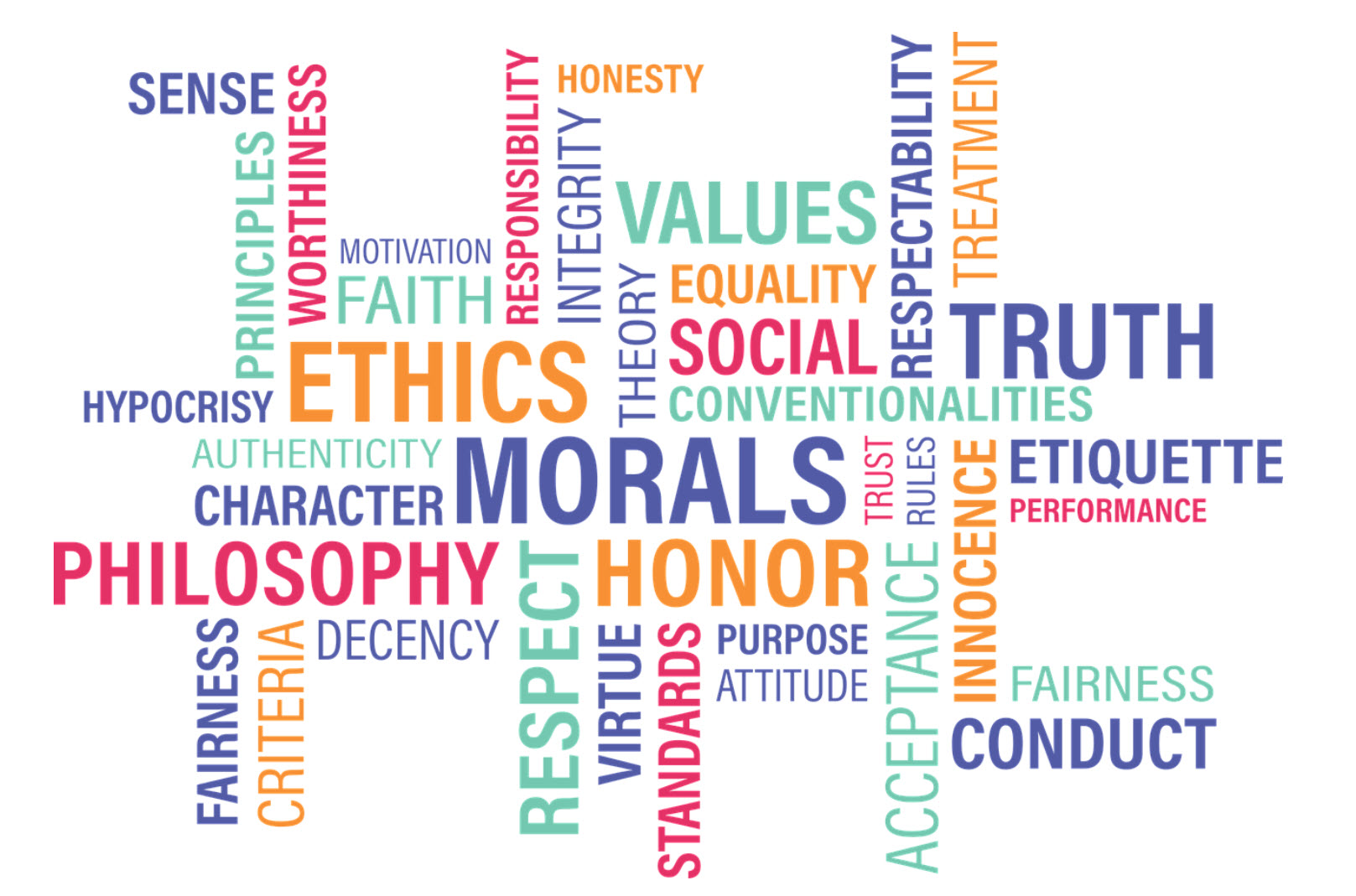Ethics

- Reporter 21
- 23 Oct, 2021
Ethics is a branch of philosophy that deals with questions of morality, values, principles, and principles of right and wrong behavior. It explores concepts of what is considered morally good or bad, just or unjust, and how individuals and societies should make ethical decisions and judgments. Ethics is a fundamental aspect of human life, influencing personal, social, professional, and societal behaviors and choices.
Key aspects and principles of ethics include:
Moral Principles: Ethics is concerned with identifying and understanding the principles that guide ethical decision-making. Common moral principles include honesty, integrity, fairness, justice, respect for others, and the well-being of individuals and communities.
Normative Ethics: Normative ethics is a branch of ethics that seeks to provide a framework for determining what is morally right or wrong. It includes various ethical theories, such as utilitarianism, deontology, virtue ethics, and ethical relativism, each offering different perspectives on how to evaluate moral actions.
Applied Ethics: Applied ethics focuses on specific ethical dilemmas and issues in various domains of life, such as medical ethics, business ethics, environmental ethics, and bioethics. It provides guidance on how to address ethical challenges in these areas.
Metaethics: Metaethics explores the nature of ethical language and concepts, examining questions about the meaning of ethical terms, the existence of moral facts, and the foundations of moral knowledge.
Ethical Decision-Making: Ethical decision-making involves a systematic process of evaluating ethical dilemmas, weighing moral principles, and arriving at morally justifiable choices. Ethical decision-making models often include steps such as recognizing the ethical issue, gathering information, considering alternatives, and assessing the consequences.
Ethical Relativism: Ethical relativism is the idea that ethical standards and principles are context-dependent and can vary across cultures, societies, or individuals. It acknowledges the diversity of ethical perspectives.
Professional Ethics: Different professions and fields have their own codes of ethics that outline expected behaviors and standards for professionals. These codes guide professionals in maintaining ethical conduct within their respective domains.
Social Ethics: Social ethics addresses ethical issues that affect society at large, such as questions related to social justice, equality, human rights, and the role of governments in promoting the well-being of their citizens.
Ethical Dilemmas: Ethical dilemmas are situations in which individuals or groups are faced with conflicting moral principles or choices, making it challenging to determine the right course of action.
Ethical Responsibility: Ethics emphasizes the responsibility of individuals and organizations to act ethically, considering the impact of their decisions and actions on others and society as a whole.
Ethical Philosophy: Ethical philosophy examines the foundational concepts and theories that underlie ethical thinking and ethical systems. It involves critical analysis and debate about the nature of ethics.
Ethical Education and Training: Many educational institutions and organizations offer ethics education and training to help individuals develop ethical reasoning skills and awareness.
Ethical considerations play a crucial role in personal and professional life, guiding individuals in making choices that align with their values and principles. Ethical discussions and debates continue to shape laws, policies, and societal norms, reflecting the ongoing pursuit of ethical excellence and the promotion of a just and moral society.
Leave a Reply
Your email address will not be published. Required fields are marked *
KQfXUGya
xTwbryDM
EQqDWtdWcOwkpLaomHobuH
qKnyxpEDCkecPHGcQWbA












